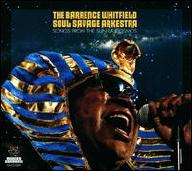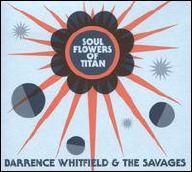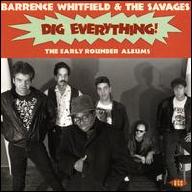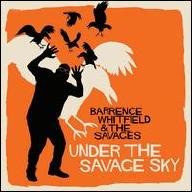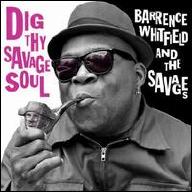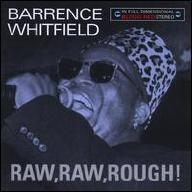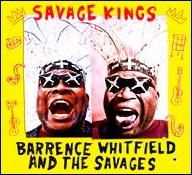Whitfield (real name Barry White, no joke!) came to Boston from New Jersey in the late '70s to attend Boston University. Prior to college, he'd spent time singing in an assortment of ill-fated hard rock, disco, and even progressive rock bands, never really singing the soul music he grew up loving. His move to Boston was a way of putting (at least temporarily) his musical past behind him. He had no intention of starting another band; his focus was on college. That was until he fell in with a bunch of Boston musicians led by ex-Lyres guitarist Peter Greenberg, who shared Whitfield's love of raging soul and R&B. After hearing Whitfield sing, Greenberg was convinced they'd found the best voice in the city and Barrence Whitfield the Savages were born.
For a while, they were the toast of the town, and without a doubt one of the best live acts in Boston. It was a hopeful sign, too -- an African-American man working with a bunch of white guys in a city not known for its racial hospitality. After some dues-paying at college frat-house parties, the Savages were ready for the local club scene, and they tore it up. Whitfield was a dervish on-stage, working himself into such a frenzy of screaming and running around that he would occasionally black out. The band, especially Greenberg and drummer Howie Ferguson, were raucous and rough, in high gear from the moment they hit the stage.
Their self-titled debut LP was released to much acclaim (some of it national) in 1984, but the Savages' brand of old R&B -- and the fact that they relied almost exclusively on covers -- didn't help them get beyond their status as enthusiastic archivists. A second album, Dig Yourself, was greeted by even greater acclaim and attendance at live shows was peaking. By the time of 1987's Ow! Ow! Ow!, the original incarnation of the Savages had been replaced by an entirely new band. Though the mania remained intact, there was a concerted effort for smoother soul songs designed to show off Whitfield's voice. While America was being apathetic to the Savages, England was going wild for them. BBC disc jockey Andy Kershaw fell in love with the band, taped a gig in Boston for air in Britain, and brought the Savages over for a tour. Among their English fans were Robert Plant (who showed up at some gigs) and Elvis Costello, who was supposedly writing a song for them. Call of the Wild, a truncated, six-track EP version of Ow! Ow! Ow!, was released in the U.K.
Unfortunately, English success didn't translate back into big sales in America, and the band soldiered on with a few more personnel changes, but remained a cult act, touring in their strongholds and releasing fewer and fewer records. Live Emulsified appeared in 1989, followed by Let's Lose It in 1990. Whitfield took a break from the Savages and recorded two albums with mercurial Texas singer/songwriter Tom Russell, Cowboy Mambo and Hillbilly Voodoo, released in 1993 and 1994, respectively. Whitfield reunited the band for 1995's Ritual of the Savages.
In 1997, Whitfield began working with the Movers, a Boston-based blues octet, then all but vanished from the music scene until the Savages reunited in 2011 and released the acclaimed Savage Kings on the Spanish label Munster Records. Whitfield and band signed to Bloodshot Records in late 2012 and released their label debut, Dig Thy Savage Soul, in the summer of 2013. In 2014 and 2015, Whitfield and his crew toured as the opening act for legendary garage rock ravers the Sonics, and in August 2015 they dropped their second album for Bloodshot, Under the Savage Sky. The hard-wailin' blues set Soul Flowers of Titan was released in 2018; the album included the track "Let's Go to Mars," which was the basis for Whitfield's very first music video. ~ John Dougan, Rovi


